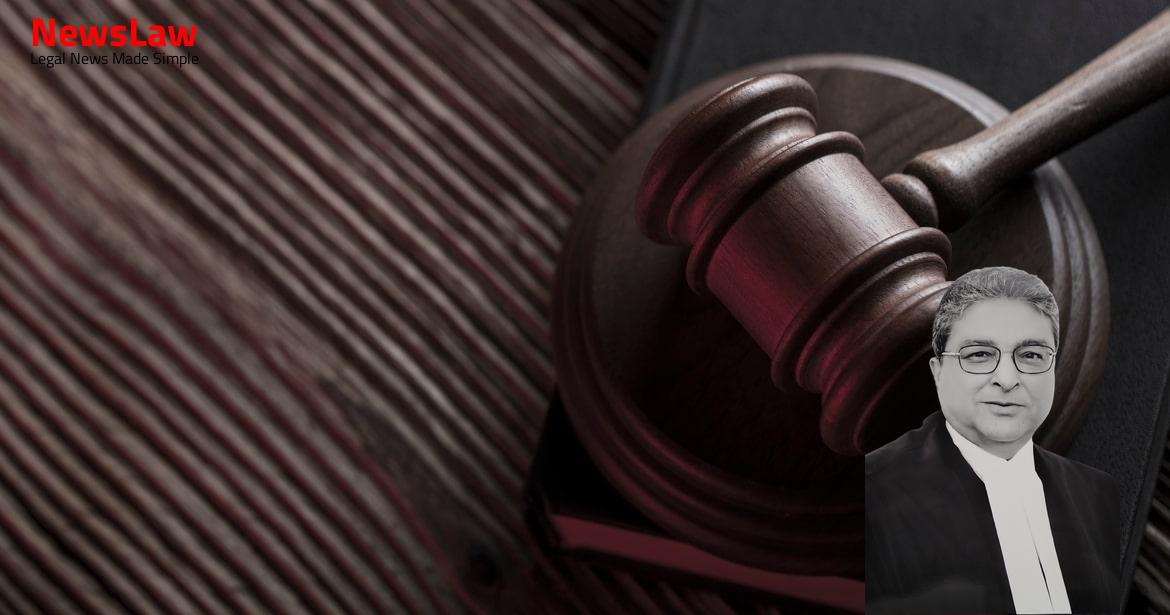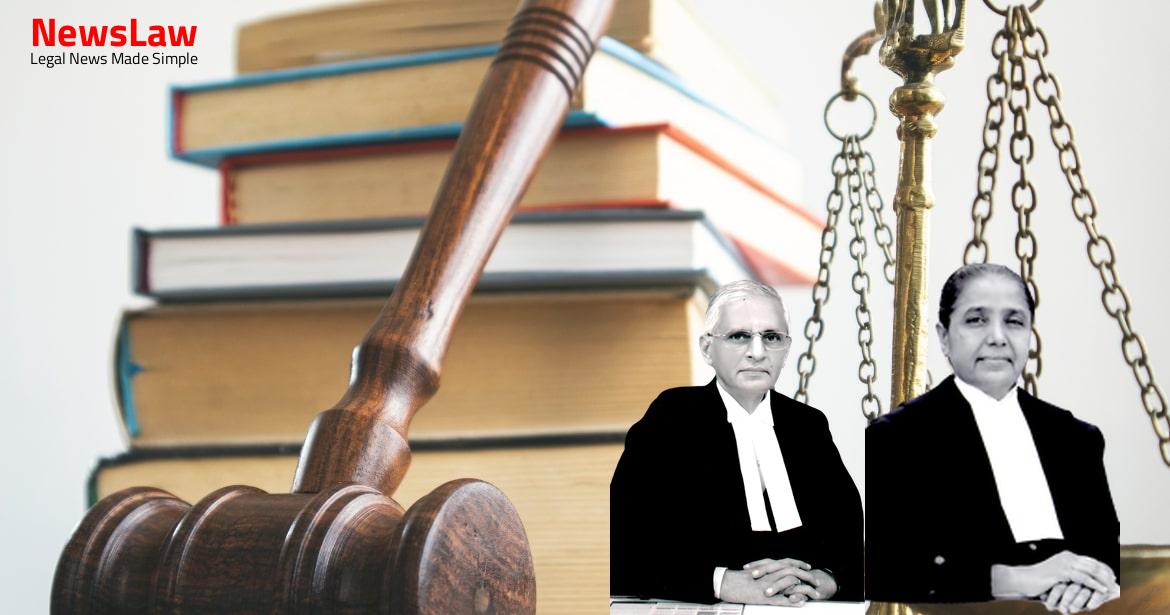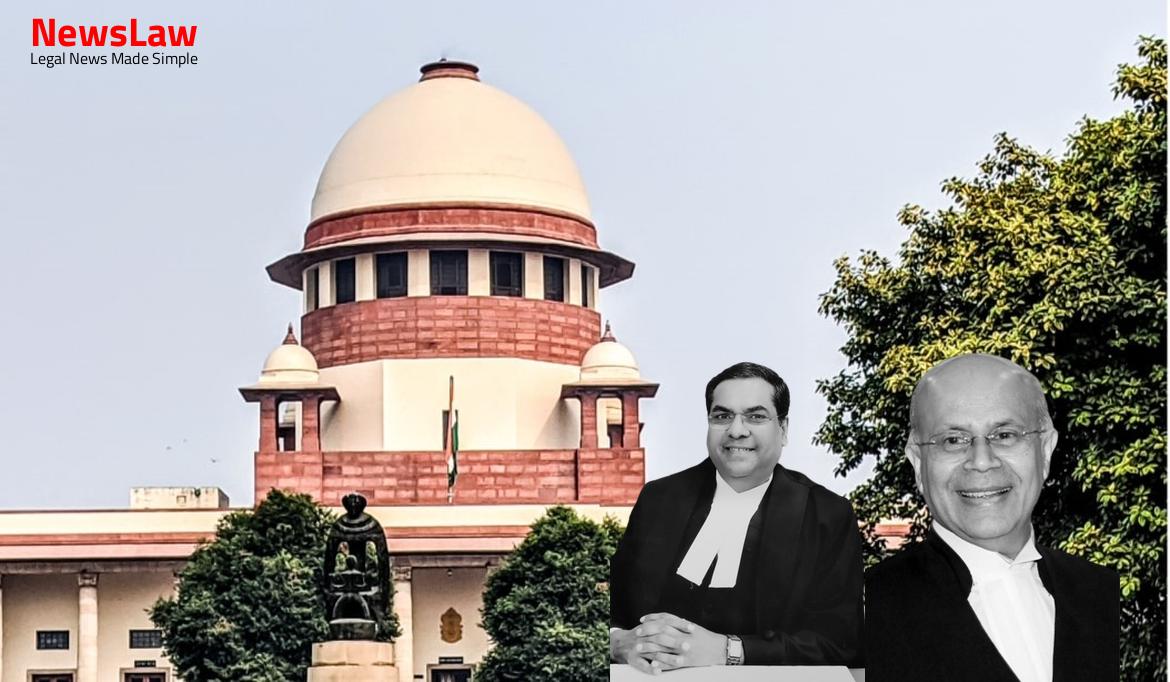In a recent legal case, the court delved into the nuanced interpretation of pre-emption rights, focusing on the relevant legal provisions such as Section 5(1)(c) and Section 6. The court’s thorough analysis shed light on how these provisions impact the rights of the involved parties. Let’s explore the intricate legal reasoning behind the court’s decision.
Facts
- A sale deed was executed on 6 January 1990 by Kirorilal in favour of Devicharan for his house and disputed courtyard.
- The High Court dismissed the second appeal stating no substantial question of law arose.
- Arguments were made that pre-emption is not available when the property is sold to someone with the right of pre-emption.
- A suit for pre-emption was filed by Beni Prasad in Rajasthan under the Pre-emption Act 1966.
- The defence claimed a partition in the family where the disputed house went to the second defendant.
- The appellants in the appeal are Devicharan’s sons.
- Issues regarding the right of pre-emption and ownership of the courtyard were raised in the trial court.
- Beni Prasad claimed joint ownership of the courtyard with Kirorilal.
- The suit was decreed by the Trial Court.
- The above finding was affirmed in first appeal.
- PW 1 stated that whatever was mentioned in the written statement filed by his father would have been correct.
- Submission made that a right of pre-emption would not be available to Beni Prasad against another holder of the right of pre-emption, equal or inferior.
- The first appellate court referred to the written statement (Exhibit A2) filed by Beni Prasad in the earlier suit of 1980.
Also Read: Legal Analysis on Arbitration Petition Limitation Period
Issue
- The issue in the present appeal is the availability of a right of pre-emption to Beni Prasad.
- Beni Prasad is alleged to be a joint owner in possession of the disputed courtyard.
Also Read: Analysis of High Courts’ Jurisdiction and Court Orders Under Article 142
Arguments
- Respondent’s counsel argued that the Trial Court and the appellate court determined Beni Prasad and Kirorilal to be brothers.
- They highlighted that if the appellant’s claim based on the sale deed is accepted, the respondents could lose access to the shared courtyard.
- Analysis of the relevant Act, specifically Section 4 and Section 5(1)(c), is crucial in this case.
- Section 5(1)(c) states that if the transferee has an equal or inferior right of pre-emption as per Section 6, the right of pre-emption does not accrue to others.
- In the scenario where the vendee has a right of pre-emption under Section 6, the right of pre-emption will only be available to someone with a superior right.
- Therefore, Beni Prasad’s assertion of a pre-emption right when Kirorilal sold the property to Devicharan should be considered valid.
- Mr Puneet Jain, learned counsel for the appellants argued that the comma in Section 5(1)(c) should be read as ‘or’ for disjunctive interpretation.
- It is contended that Section 5(1)(c) should be read as either ‘the right of pre-emption shall not accrue… on a transfer to any of the persons mentioned in Section 6’ or ‘the right of pre-emption shall not accrue… to any person who has an equal or inferior right of pre-emption’.
Also Read: Electoral Malpractices in Mayor Election
Analysis
- Both Beni Prasad and Devicharan fall within the provisions of Section 6(1)(ii) regarding pre-emption rights.
- Devicharan had a pre-existing right in the shared courtyard according to records.
- The right of pre-emption can be rendered imperfect if the vendor transfers the property to someone with a superior right.
- The plaintiff, Beni Prasad, had a superior right of pre-emption under Section 6(3) as the brother of the second defendant.
- Section 5(1)(c) dictates that pre-emption is not available if the transfer is to a person covered by Section 6 with an equal or inferior right.
- Devicharan’s right under Section 6(1)(ii) was inferior to Beni Prasad’s superior right under Section 6(3).
- Section 6(1) specifies the persons to whom the right of pre-emption accrues.
- Section 6(1)(ii) grants the right of pre-emption to owners of immovable property with common features like a stair-case, entrance, or other amenity.
- Section 5(1)(c) stipulates that a right of pre-emption does not accrue to any person mentioned in Section 6 if they have an equal or inferior right of pre-emption.
- The right of pre-emption is attached to the property and can only be enforced against the vendee.
- In the case of Bishan Singh v Khazan Singh, the law on pre-emption under the Punjab Pre-Emption Act 1913 was summarized by Justice Subba Rao.
- In the case of Radhakisan Laxminarayan Toshniwal v Shridhar Ramchandra Alshi, it was discussed whether a suit for pre-emption could be filed before the sale deed was executed.
- The right of pre-emption is a preferential right to acquire property by substituting the original vendee.
- The sale or transfer of immovable property is a necessary condition for the enforceability of the right of pre-emption.
- Devicharan has an inferior right of pre-emption compared to Beni Prasad
- Beni Prasad’s superior right of pre-emption prevails over Devicharan’s claim
Decision
- The court decided that there shall be no order as to costs.
- The Trial Judge, first appellate court, and second appeal all provided concurrent findings based on a correct interpretation of the provisions mentioned.
- Due to the above reasons, the appeal was dismissed.
Case Title: SURESH CHAND AND ANR. Vs. SURESH CHANDER (D) THR. LRS. (2020 INSC 212)
Case Number: C.A. No.-000482-000482 / 2020



